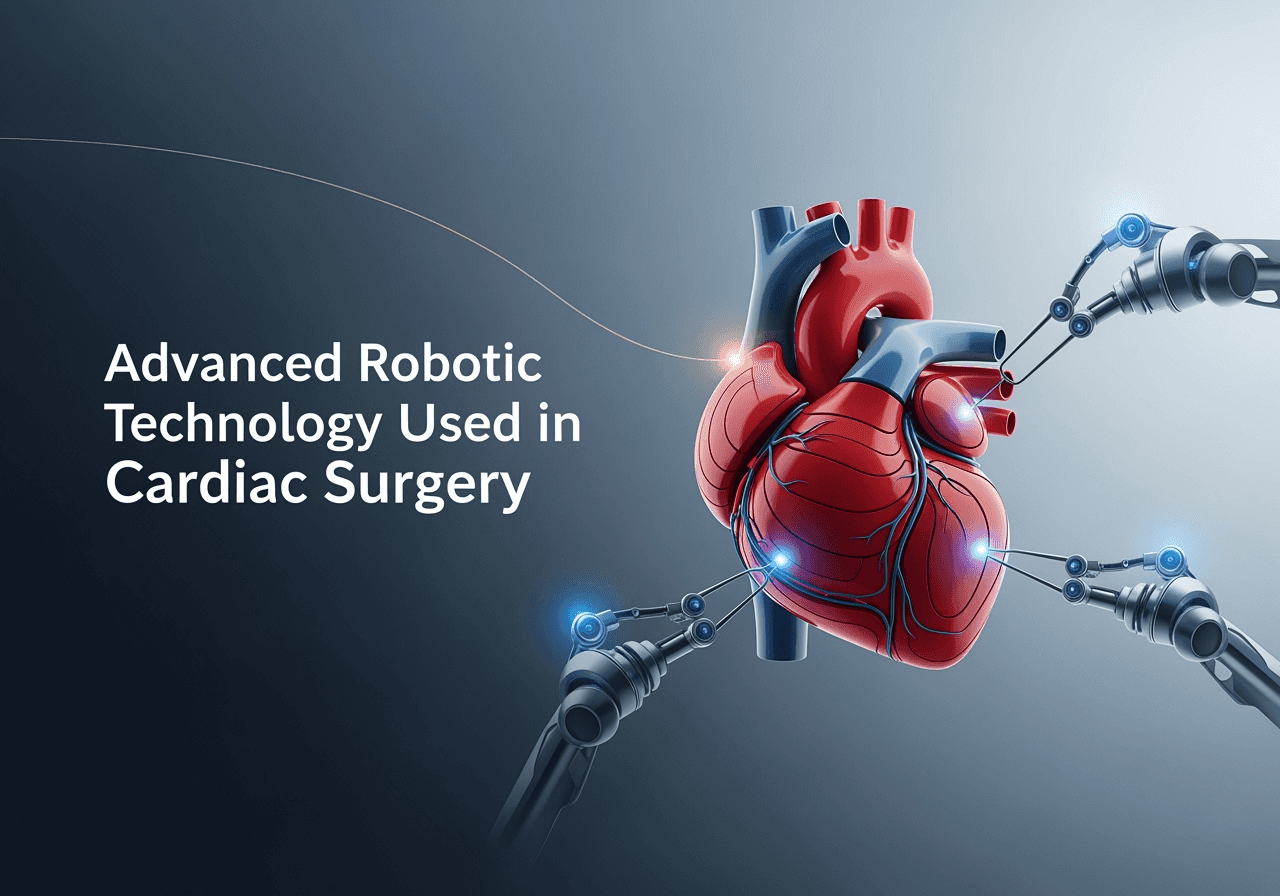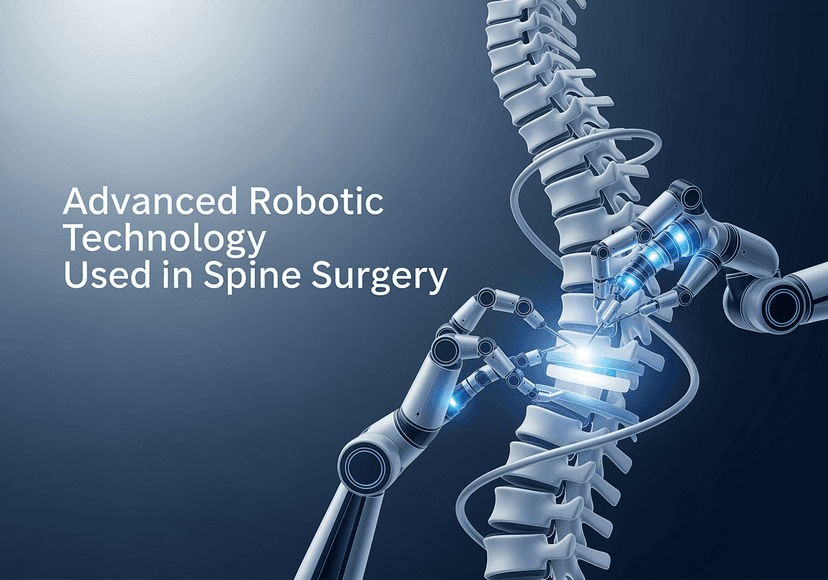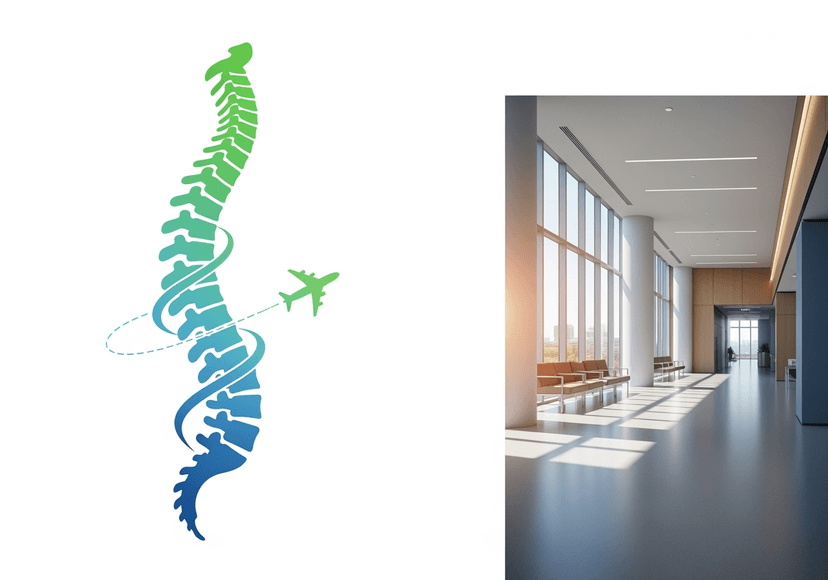
Advanced Robotic Technology Used in Cardiac Surgery
29 Oct, 2025
 Healthtrip
HealthtripThe Rise of Robotics in Cardiac Surgery
Cardiac surgery has always been at the forefront of medical innovation, and the integration of robotic technology is just the latest chapter in this ongoing evolution. For years, traditional open-heart surgery, while effective, involved significant incisions, longer recovery periods, and potential complications. Robotics offers a less invasive alternative, allowing surgeons to perform complex procedures through small incisions, often just a few centimeters in length. The da Vinci Surgical System, for example, provides surgeons with enhanced visualization, greater dexterity, and superior precision compared to traditional techniques. Think of it as giving a skilled surgeon the tools of a master craftsman, amplifying their abilities and allowing them to work with remarkable finesse. This translates to reduced pain, less blood loss, shorter hospital stays, and a quicker return to normal activities for patients. Fortis Escorts Heart Institute in New Delhi and Memorial Sisli Hospital in Istanbul are examples of hospitals embracing these advancements, offering patients access to state-of-the-art robotic cardiac surgery, facilitated by Healthtrip's commitment to connecting you with the best possible care. The adoption of robotic techniques is not just a technological upgrade; it's a paradigm shift in how we approach heart surgery, prioritizing patient well-being and optimizing outcomes.
Most popular procedures in India
Benefits of Robotic Cardiac Surgery
The advantages of robotic cardiac surgery extend far beyond just smaller incisions. The enhanced precision and dexterity afforded by robotic systems allow surgeons to perform intricate maneuvers with a level of control that is simply not possible with traditional techniques. This is particularly beneficial in procedures such as mitral valve repair, where precise suturing and reconstruction are crucial for long-term success. Imagine a surgeon delicately reconstructing a damaged valve with the help of robotic arms that mimic their own movements, only with greater stability and range of motion. Furthermore, the 3D visualization provided by robotic systems allows surgeons to see the surgical field in greater detail, improving accuracy and reducing the risk of complications. Patients often experience less post-operative pain and discomfort, leading to a reduced reliance on pain medication. The smaller incisions also result in less scarring, both physically and emotionally, allowing patients to regain their confidence and return to their lives with renewed vigor. Hospitals like Vejthani Hospital in Bangkok and Saudi German Hospital Cairo offer robotic cardiac surgery, leveraging these benefits to provide patients with superior care. Healthtrip can connect you with these leading institutions, ensuring you receive the best possible treatment and support throughout your journey.
Types of Cardiac Procedures Performed Robotically
Robotic technology is not a one-size-fits-all solution, but it has proven to be highly effective in a variety of cardiac procedures. Mitral valve repair and replacement are among the most common applications, with robotic systems enabling surgeons to meticulously reconstruct or replace damaged valves with remarkable precision. Coronary artery bypass grafting (CABG), a procedure to improve blood flow to the heart, can also be performed robotically in select cases, often through smaller incisions than traditional open-heart surgery. Additionally, robotic techniques are being used to treat atrial fibrillation, a common heart rhythm disorder, through minimally invasive ablation procedures. The possibilities continue to expand as technology advances, with researchers exploring new applications for robotics in areas such as heart tumor removal and congenital heart defect repair. Hospitals like Fortis Memorial Research Institute in Gurgaon and Memorial Bahçelievler Hospital in Istanbul are leading the way in adopting these advanced techniques. Healthtrip provides access to these innovative centers, paving the way for patients to benefit from the latest advancements in cardiac care. It's not just about treating the disease, but about empowering patients to live healthier, fuller lives.
Wellness Treatments
Give yourself the time to relax
Lowest Prices Guaranteed!

Lowest Prices Guaranteed!
Finding the Right Hospital and Surgeon with Healthtrip
Choosing to undergo cardiac surgery, especially with advanced robotic technology, is a significant decision. It's crucial to find a hospital with the necessary expertise and technology, as well as a surgeon who is highly skilled and experienced in robotic cardiac procedures. This is where Healthtrip can be an invaluable resource. We provide a comprehensive platform that connects you with world-class hospitals and renowned cardiac surgeons across the globe. Whether you're considering Fortis Hospital, Noida, or the cutting-edge facilities at Yanhee International Hospital in Thailand, Healthtrip gives you detailed information about each hospital's capabilities, accreditations, and patient reviews. You can also access profiles of experienced surgeons, including their qualifications, areas of expertise, and success rates. Our team of medical experts can provide personalized guidance and support, helping you navigate the complexities of choosing the right treatment option and finding the best possible care for your individual needs. We understand that traveling abroad for medical treatment can be daunting, which is why we offer comprehensive travel and logistical support, ensuring a seamless and stress-free experience. Healthtrip is committed to empowering you with the knowledge and resources you need to make informed decisions and embark on your journey to a healthier heart with confidence.
The Future of Robotic Cardiac Surgery
The field of robotic cardiac surgery is constantly evolving, with ongoing research and development pushing the boundaries of what's possible. As technology advances, we can expect to see even more sophisticated robotic systems with enhanced capabilities, such as improved imaging, greater dexterity, and the ability to perform increasingly complex procedures. Artificial intelligence (AI) and machine learning are also playing a growing role, with the potential to assist surgeons in real-time decision-making, personalize treatment plans, and predict patient outcomes. Imagine a future where robotic systems can analyze patient data and provide surgeons with customized guidance during surgery, optimizing the procedure for each individual's unique anatomy and condition. Furthermore, the increasing accessibility of robotic technology will make it available to more patients around the world, regardless of their location or socioeconomic status. Hospitals like LIV Hospital, Istanbul, are actively participating in research and development, contributing to the advancement of robotic cardiac surgery. Healthtrip remains at the forefront of these developments, constantly seeking out new and innovative treatments to provide our patients with the best possible care. The future of robotic cardiac surgery is bright, and we're excited to be a part of this transformative journey.
Where is Robotic Cardiac Surgery Performed?
Robotic cardiac surgery, a marvel of modern medicine, is becoming increasingly accessible around the globe, offering patients a less invasive alternative to traditional open-heart surgery. While it's not available everywhere just yet, the number of hospitals and medical centers equipped with the necessary technology and expertise is steadily growing. You'll find leading institutions offering robotic cardiac surgery in various countries, each committed to providing cutting-edge cardiac care. For instance, in the United Arab Emirates, NMC Specialty Hospital in Abu Dhabi and NMC Specialty Hospital, Al Nahda, Dubai are equipped with advanced facilities and skilled surgeons. Similarly, across the globe, hospitals are investing in robotic surgery programs to enhance patient outcomes and reduce recovery times. In Thailand, Vejthani Hospital is a notable option for people seeking robotic cardiac surgery. In Europe, Cleveland Clinic London provides comprehensive cardiac services, including robotic options. Meanwhile, in India, Fortis Memorial Research Institute, Gurgaon, is recognized for its expertise in robotic cardiac procedures. The increasing availability of robotic cardiac surgery signifies a promising shift in how heart conditions are treated, offering hope and improved quality of life for many patients. It is always best to check with the hospitals directly or through platforms like Healthtrip to ensure the availability of robotic surgery and to confirm the expertise of the surgical team, ensuring your heart is in the best hands.
Why Choose Robotic Cardiac Surgery? Benefits and Advantages
Choosing robotic cardiac surgery over traditional open-heart surgery often boils down to the numerous benefits it offers. Imagine undergoing a major heart procedure with smaller incisions, less pain, and a potentially quicker return to your daily life – that's the promise of robotic cardiac surgery. One of the most significant advantages is the minimally invasive nature of the procedure. Instead of a large chest incision, surgeons make a few small cuts, through which they insert robotic arms equipped with specialized instruments. This leads to reduced blood loss during surgery, a lower risk of infection, and less scarring. Patients typically experience less post-operative pain, requiring less pain medication, which, let's be honest, nobody really enjoys. The precision of the robotic system allows surgeons to perform complex procedures with greater accuracy and control, potentially leading to better outcomes. Another key benefit is the shorter hospital stay. Because the body experiences less trauma, recovery is generally faster, and patients can often return home sooner. This also means a quicker return to work and other activities, getting you back on your feet and enjoying life without a prolonged recovery period. For those considering their options, hospitals like Fortis Memorial Research Institute, Gurgaon offer cutting-edge robotic cardiac surgery. Ultimately, the choice is a personal one, but the advantages of robotic cardiac surgery make it a compelling option for many patients seeking cardiac treatment. Always discuss the risks and benefits of treatment with your doctor.
Who is a Candidate for Robotic Cardiac Surgery?
Determining whether you're a suitable candidate for robotic cardiac surgery involves several factors that your cardiologist and surgical team will carefully evaluate. While the benefits of this minimally invasive approach are appealing, it's not the right choice for everyone. Generally, ideal candidates are individuals with specific heart conditions that can be effectively treated using robotic techniques. These conditions often include mitral valve repair or replacement, atrial septal defect (ASD) closure, coronary artery bypass grafting (CABG) in certain circumstances, and some types of heart tumor removal. However, factors such as the severity of your condition, your overall health, and your medical history play a significant role. Patients with severe obesity, advanced lung disease, or previous chest surgeries might not be ideal candidates due to the technical challenges that these conditions can present during the robotic procedure. Your surgeon will also consider the anatomy of your heart and blood vessels to determine if the robotic approach is feasible and safe for you. It's also important to note that not all hospitals offer robotic cardiac surgery, and the availability of the procedure may depend on the expertise of the surgical team and the specific technology available at the hospital. You might consider exploring options available in hospitals like Cleveland Clinic London, Fortis Memorial Research Institute, Gurgaon, and NMC Specialty Hospital, Al Nahda, Dubai, as these have the necessary infrastructure and skilled professionals. A comprehensive evaluation, including a thorough physical examination, cardiac imaging tests, and a review of your medical history, is essential to determine if robotic cardiac surgery is the right option for you. This ensures that you receive the most appropriate and effective treatment plan tailored to your individual needs.
Also Read:
How Does Robotic Cardiac Surgery Work?
Robotic cardiac surgery, at its heart (pun intended!), is a minimally invasive approach that utilizes advanced robotic technology to perform intricate heart procedures. Forget the image of a clunky robot hovering over you – imagine a highly skilled surgeon controlling sophisticated instruments with enhanced precision and dexterity. This is the essence of robotic cardiac surgery. The surgeon sits at a console, typically located in the same operating room, and views a high-definition, three-dimensional image of the surgical site. This magnified view provides a level of detail and clarity that is simply not possible with traditional open surgery. The surgeon then manipulates robotic arms, which hold specialized surgical instruments. These instruments are designed to mimic the movements of the human hand, but with greater precision and range of motion. For example, the da Vinci Surgical System, a widely used robotic platform, allows surgeons to rotate instruments 360 degrees, accessing areas that would be difficult or impossible to reach with conventional techniques. The robot does not perform the surgery autonomously; it merely translates the surgeon's hand movements into precise actions inside the patient's body. This allows the surgeon to perform complex maneuvers with greater control and stability, leading to potentially better outcomes and reduced trauma for the patient. Healthtrip collaborates with hospitals like Fortis Escorts Heart Institute and Memorial Sisli Hospital, where experienced surgeons utilize these advanced robotic systems for various cardiac procedures, offering patients access to cutting-edge technology and expert care.
Types of Cardiac Procedures Performed with Robotics
Robotic cardiac surgery isn't just a futuristic concept; it's a reality for a growing number of heart conditions. Several types of cardiac procedures can be performed using robotic assistance, each benefiting from the precision and minimally invasive nature of the technique. One of the most common applications is mitral valve repair or replacement. The mitral valve, responsible for regulating blood flow between the left atrium and left ventricle, can become diseased or damaged, leading to heart failure. Robotic surgery allows surgeons to repair or replace the valve through small incisions, avoiding the need for a large chest incision. Coronary artery bypass grafting (CABG) is another procedure that can be performed robotically, particularly in cases involving the left anterior descending (LAD) artery. This involves grafting a healthy blood vessel to bypass a blocked coronary artery, restoring blood flow to the heart muscle. Atrial septal defect (ASD) closure, a procedure to close a hole between the two upper chambers of the heart, can also be performed robotically. This minimally invasive approach is especially beneficial for patients with ASDs located in difficult-to-reach areas. Furthermore, surgeons are exploring the use of robotics for tumor removal and other complex cardiac procedures. The use of robotics in these varied procedures highlights its versatility and potential to improve outcomes for a wide range of heart conditions. Healthtrip partners with leading hospitals such as Vejthani Hospital and Saudi German Hospital Cairo, which offer robotic cardiac surgery options, ensuring that patients have access to the most appropriate treatment for their specific needs. Don’t hesitate to consult with Healthtrip to explore the possibilities.
Real-World Examples and Success Stories
The true testament to the effectiveness of robotic cardiac surgery lies in the real-world examples and success stories that demonstrate its impact on patients' lives. Consider the case of a 55-year-old patient with severe mitral valve regurgitation. Traditional open-heart surgery would have required a large chest incision, a lengthy recovery period, and a higher risk of complications. However, thanks to robotic mitral valve repair performed at Fortis Escorts Heart Institute, the patient underwent the procedure through small incisions, experienced minimal pain, and was back to their normal activities within a few weeks. Then there's the story of a 62-year-old man with a blocked left anterior descending (LAD) artery. Robotic-assisted CABG, performed at Memorial Bahçelievler Hospital, allowed surgeons to bypass the blockage without opening the chest, resulting in a faster recovery and reduced scarring. These are just a few examples of the many successful outcomes achieved through robotic cardiac surgery. These success stories not only highlight the clinical benefits of the technique but also underscore its potential to improve patients' quality of life. Healthtrip facilitates access to such advanced procedures, connecting patients with experienced surgeons and leading hospitals like Bangkok Hospital and Mount Elizabeth Hospital, where robotic cardiac surgery is performed with exceptional skill and care. These real-world examples provide hope and inspiration, demonstrating the transformative power of robotic cardiac surgery.
Also Read:
Conclusion
Robotic cardiac surgery represents a significant advancement in the field of cardiac care. Its minimally invasive nature, enhanced precision, and potential for faster recovery make it an appealing option for many patients with heart conditions. From mitral valve repair to coronary artery bypass grafting and atrial septal defect closure, robotic surgery is transforming the way these procedures are performed. While it may not be suitable for every patient, the benefits of robotic cardiac surgery are undeniable for those who qualify. As technology continues to evolve, we can expect even more innovative applications of robotics in cardiac surgery, further improving outcomes and quality of life for patients. Healthtrip is committed to providing patients with access to the latest medical advancements, including robotic cardiac surgery. We partner with leading hospitals and experienced surgeons around the world, such as Hisar Intercontinental Hospital and Singapore General Hospital, to ensure that our patients receive the best possible care. If you are considering robotic cardiac surgery, contact Healthtrip today to learn more about your options and find the right treatment plan for your individual needs. Your heart health is our priority, and we are here to guide you every step of the way.
Related Blogs

Frequently Asked Questions About Spine Surgery
Detailed insights into spine surgery – doctors, hospitals, technology, recovery,

Advanced Robotic Technology Used in Spine Surgery
Detailed insights into spine surgery – doctors, hospitals, technology, recovery,

How Healthtrip Supports Foreign Patients for Spine Surgery in India
Detailed insights into spine surgery – doctors, hospitals, technology, recovery,

Top Medical Packages for Spine Surgery Offered by Healthtrip
Detailed insights into spine surgery – doctors, hospitals, technology, recovery,

Stepwise Recovery Plan After Spine Surgery
Detailed insights into spine surgery – doctors, hospitals, technology, recovery,

Choosing the Right Surgeon for Spine Surgery
Detailed insights into spine surgery – doctors, hospitals, technology, recovery,










